ONE of Australia’s most exclusive distilleries will open its doors to the public on the Tweed Coast by early next year.
Husk Distillers, at North Tumbulgum, bottles a limited number of barrels of its premium, French Caribbean-inspired rum each year.
The family business, founded by Paul Messenger and his wife Mandy Perkins, is one of just a handful of paddock-to-bottle distilleries in the world, and the only one in Australia creating what in this part of the world is a unique rum.
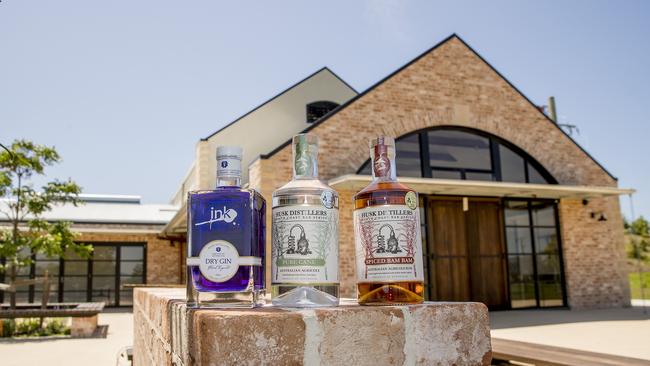
Daughter and sales and marketing manager Harriet Messenger says the 60ha sugar cane farm distillery business was launched as Husk Distillers in 2012, after a family trip with sisters Edwina and Claudia, and their grandma, to the French Caribbean where they first tasted agricole rum.
“Agricole rum is made from cane sugar,” Ms Messenger said.
“It’s very unusual. We’re the only people in Australia who make it. And (agricole rum) makes up only 3 per cent of all rum.
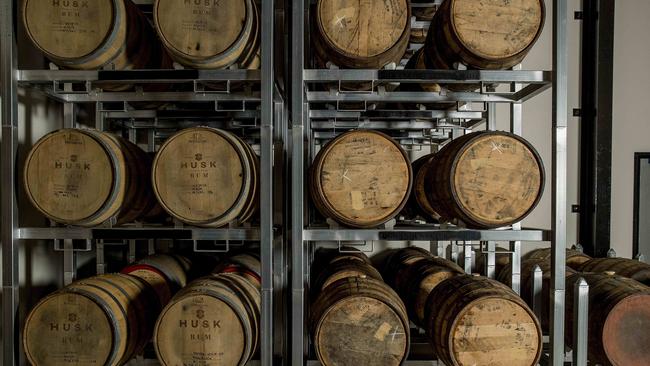
“Pretty much every rum you’ve ever tasted is made from molasses.”
Ms Messenger said her father was disappointed he could not find the rum in Australia, so set out to create his own.
Three years after establishing Husk, they sold their first bottle — but it wasn’t rum. It was gin.
“The reason people weren’t (making agricole rum) was because you can only do it for half the year,” Ms Messenger said. There is only one cane crop a year in the Tweed.
“So we thought we’d make gin in the summer and rum in the winter.”
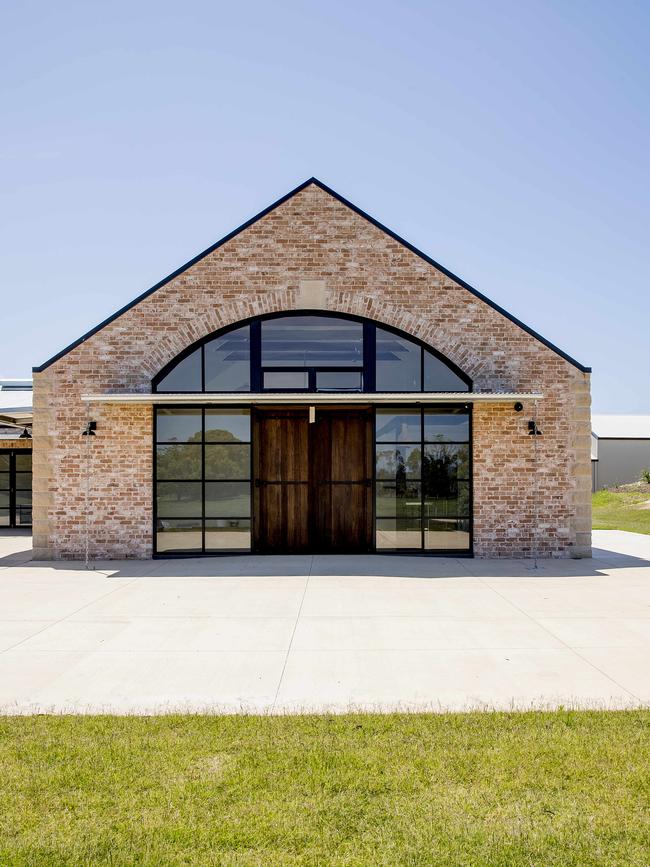
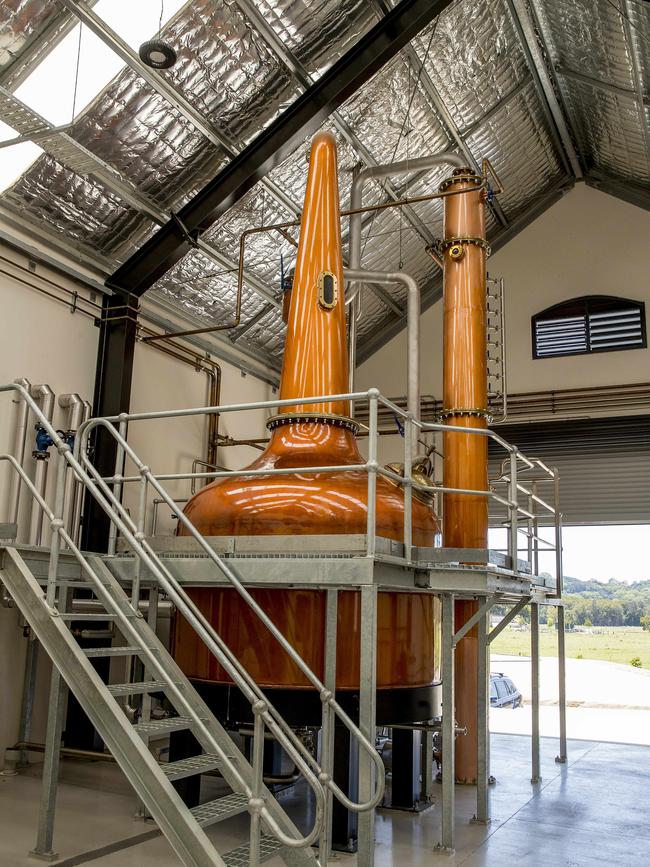
But the family’s award-winning gin, called Ink, went “bananas”, Ms Messenger said.
The floral-based gin is infused with butterfly pea flower petals. Generally an indigo colour, the drink turns pink due to the altered pH levels when mixed with tonic water, or lemon or lime juice.
The gin is so popular that they now produce the spirit all-year round, while carefully crafting their spiced aged rum in the background.
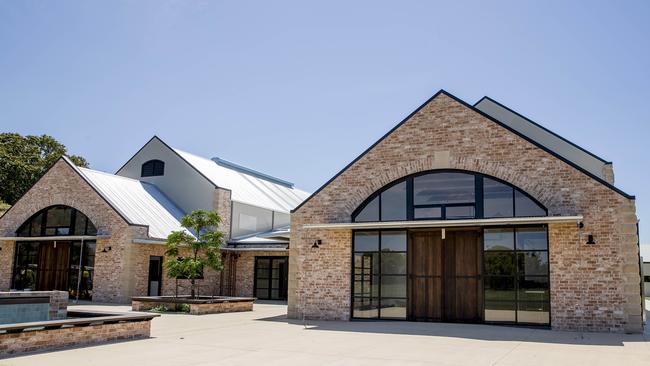
“During the busy season we can bottle 5000 bottles (of gin) a week,” Ms Messenger said.
Their premier rum, Spiced Bam Bam, is aged for four or five years and despite just a limited amount of bottles being produced, the rum has already won a gold medal at the San Francisco World Spirits Competition.
NEVER MISS A MINUTE WITH THE GOLD COAST BULLETIN APP
It is also in such high demand that each batch sells out within months. The next batch will be due just before Christmas, and expected to sell out soon after. In the future, some of the liquor will be aged up to 10 years.
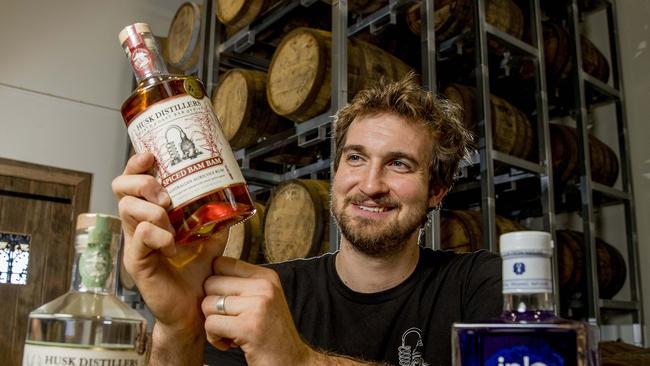
The rum is meant to be drunk neat or on ice, but Ms Messenger says it is versatile enough to be mixed as well.
“We’ve had a very monotonal rum culture in Australia. We just have rum with Coke, but that’s slowly changing,” she said.
GET FULL DIGITAL ACCESS FOR $3 A WEEK
“Overseas they think our drinking culture is weird. They drink rum like we drink whiskey, neat or on ice. It’s a different mindset, one of appreciation.”
Ms Messenger said the farm distillery had originally operated out of a 6m by 9m shed, but they had recently moved into purpose-built premises.
The new area, parts of which will be open to the public by March next year for tours, includes the distillery, the barrel house, a bottling area, a crushing shed and a cellar door bar with a cafe and event spaces.
Seven people are employed to bottle the drinks by hand, but Ms Messenger said the workers wouldn’t mind the job being semiautomatic in the future.
The business also produces an unaged rum, Husk Pure Cane, which has also garnered multiple awards.

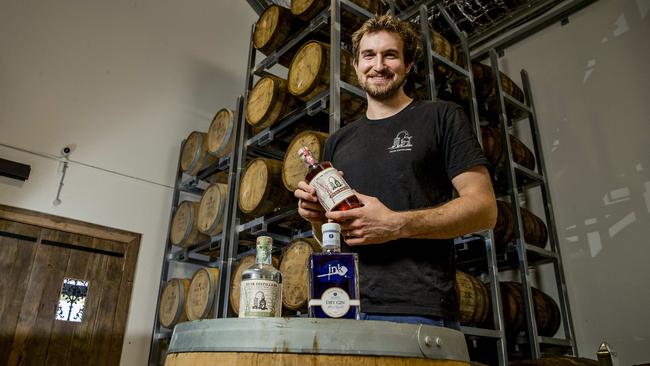
Add your comment to this story
To join the conversation, please log in. Don't have an account? Register
Join the conversation, you are commenting as Logout
Sharks unveil huge new stadium, $500m mega development
Southport Sharks has unveiled plans for a near-21,000-seat stadium and three residential towers in a massive redevelopment that could reshape the Gold Coast's sporting landscape.
Revealed: All Coast’s options for solving gridlock nightmare
The Gold Coast's population will surge by 350,000 in two decades, but the city's transport blueprint remains in limbo after light rail's dramatic cancellation. FIND OUT MORE